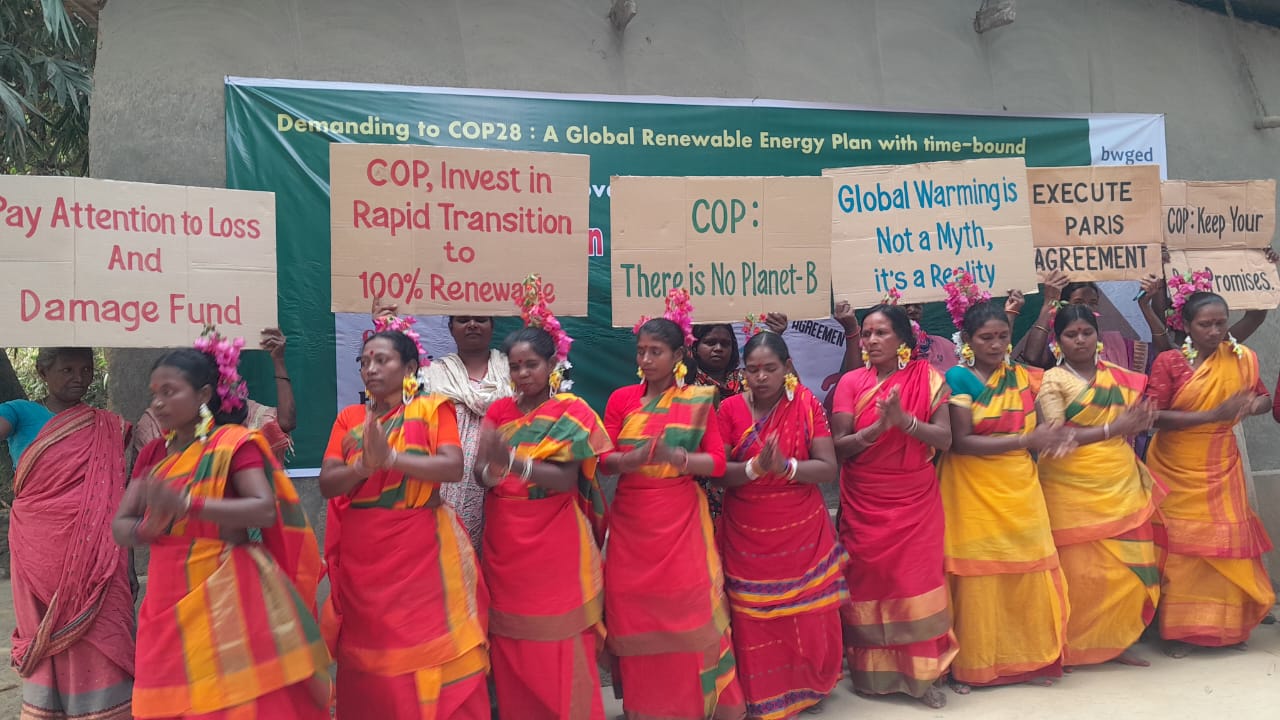- 28.03.2024
- Ecological justice
- Array
A new report by Recourse and BRICS Feminist Watch, with support from NGO Forum on ADB, CLEAN (Coastal Livelihood and Environmental Action Network), Oil Change International and Gender Action, calls out the Asian Infrastructure Investment Bank’s (AIIB’s) approach to ‘climate finance’ as gender blind and fossil friendly.
In its 2020 Corporate Strategy the AIIB set an ambitious target for all of its financing approvals to be for climate finance by 2025. Only two years later, the AIIB announced that it had already exceeded this target. On the surface, this looks like a major victory and a blueprint for how MDBs can shift their operating models towards greener goals within a very short timeframe. It fulfils recent calls from the COP28 climate conference and others who want the MDBs to play a bigger part in providing finance to address the climate challenge, such as the G20.
But it also raises questions how the AIIB could exceed its ambitious target so quickly, while at the same time continuing to invest in fossil fuels. In the same year as the AIIB claimed to have met its climate finance target, the bank approved investment in a new greenfield gas power project in Bangladesh. It also reported a reduction in projects contributing to Sustainable Development Goal 5 on gender equality compared to the year before, despite committing to enhance its contributions in the Corporate Strategy.
The answer lies in how ‘climate finance’ is defined and accounted for. A group of MDBs, including the AIIB, has developed its own principles for how to assess and account for climate finance, one for mitigation and one for adaptation. The AIIB’s climate finance assessments build on these principles, but with its own modification of what counts. Shockingly gender is not mentioned once and financing for fossil fuels is far from fully excluded.
The report takes a critical look at the AIIB’s climate finance portfolio in 2022, the year the AIIB claimed to have not just reached but exceeded its 50% target, based on publicly available information. It raises concerns about how MDBs in general and the AIIB in particular define and account for climate finance, as it includes projects with documented rights violations, fossil fuels leakages and a disregard for gender equality.
Finally, it presents recommendations for what MDB climate finance should be instead:
- Exclude all financing for fossil fuels and other GHG intensive activities, including through loopholes, such as financing through financial intermediaries.
- Exclude projects that would not be carried out without dedicated fossil fuel based power supply.
- Stop promoting false and costly ‘solutions’, such as carbon capture and storage and fossil fuels-derived hydrogen.
- Harmonise accounting and improve transparency and disclosure.
- Balance funding for adaptation and mitigation.
- Be grant based or highly concessional, to avoid adding to poor countries’ debt burden.
- Ensure everyone benefits equally from climate finance, including women and girls in all their diversities, especially from marginalised communities.
- Include a gender policy to ensure all projects are gender inclusive with gender equality as a core objective, and with gender analysis, tools, perspectives and principles integrated. All projects should have gender action plans, gender indicators, and budget lines for gender commitments.
- Incorporate a human rights-based approach, that protects against the risk of climate finance being used to support projects that result in human rights violations and exacerbate social and economic inequalities.
- Require inclusive planning, Free, Prior and Informed Consent (FPIC), and comprehensive impact mitigation strategies to protect and promote the rights and well-being of Indigenous Peoples.
Read the report here.

